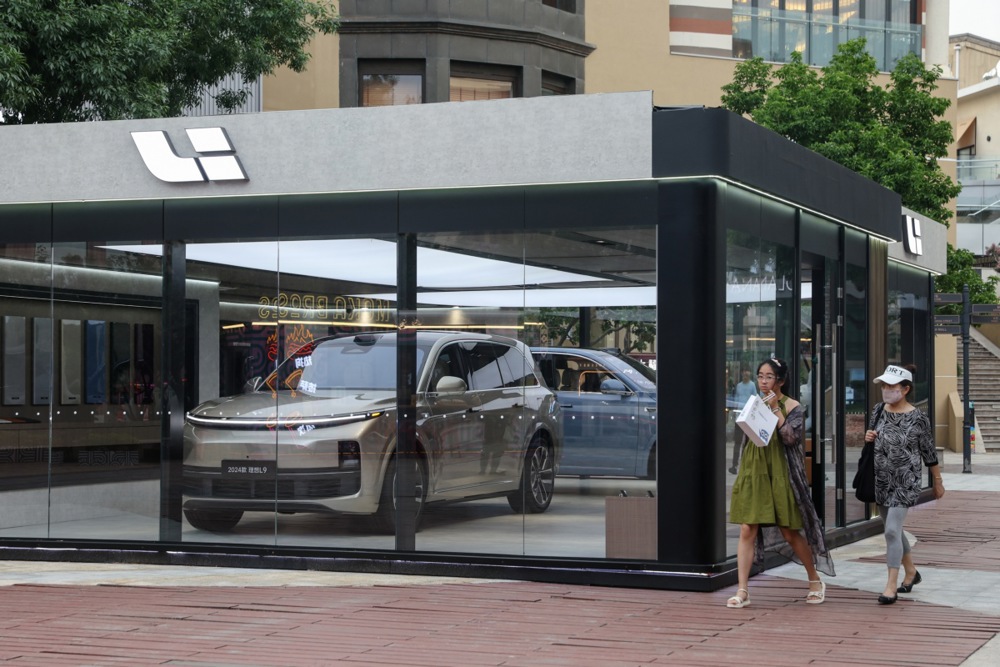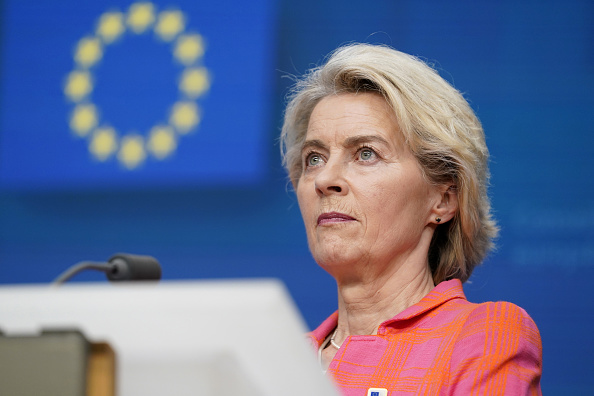Germany’s economy minister Robert Habeck has said “it must be clear that we will not back down in the face of the USA” after Washington announced new 25 per cent tariffs on foreign-made cars.
The European Union “must now give a firm response to the tariffs,” added Habeck, a Greens MP who also currently serves as Germany’s Vice Chancellor, on March 27.
One in three automobiles from Germany’s Stuttgart-based manufacturer Porsche are sold to the US, along with one in six Munich-made BMWs.
They will face the new tariffs from April 2, which US President Donald Trump called “Liberation Day” in a March 26 announcement.
Motor vehicles also represented the UK’s biggest export to the US, with the country buying £6.4 billion worth of British-made automobiles including Land Rovers and Jaguars each year.
The UK Government was in “extensive” discussions with the US “to protect trade between our countries”, Chancellor Rachel Reeves told Times Radio on March 27, adding “those conversations will continue”.
Reeves insisted the UK did not want to “escalate” trade wars with the US.
The UK and US economies were “closely intertwined,” she noted, adding “a million British people work for American firms” and “a million Americans work for British firms”.
European Commission President Ursula von der Leyen said on March 26 the EU would “continue to seek negotiated solutions, while safeguarding its economic interests”.
“I deeply regret the US decision,” she added, describing the car industry as “a driver of innovation, competitiveness, and high quality jobs, through deeply integrated supply chains on both sides of the Atlantic”.
Jochen Stanzl, chief market analyst at UK-based financial services company CMC Markets, told Brussels Signal on March 27: “The tariff hammer has fallen,” with new tariffs “unlikely to be rescinded before their implementation next week”.
Germany’s DAX stock market has “experienced a fierce sell-off”, with “a grim outlook”, with the new tariffs set to “significantly worsen the situation for German car manufacturers, whose profits have already taken a substantial hit,” he said.
While some German automobiles were manufactured in the US, “80 per cent of Volkswagen’s car sales in the US are imports, while for Mercedes-Benz, this figure exceeds 60 per cent and for BMW, it is about 50 per cent”, said Stanzl.
With the new tariffs likely to come into force, the EU was “now tasked with negotiating preferences, whereby only the portion of each vehicle not manufactured in the US will be subject to the tariff”, he said.
He warned that “not all manufacturers will succeed equally in these negotiations and it’s quite possible that certain vehicles may no longer be available in the US market due to lost competitiveness”.
Trump has also suggested new tariffs may be applied in other sectors, such as pharmaceuticals, an announcement likely to strike fear in Dublin.
Some 80,000 jobs could be at risk if the US President acted on his administration’s claims the Irish Government was operating a “tax scam”, Irish finance minister Paschal Donohoe told national broadcaster RTÉ.
After announcing the automotive tariffs, Trump said new ones would also “bring pharmaceuticals back” to the US, complaining “we don’t make anything here”.
He also fielded reporters’ questions about whether the tariffs would hurt US billionaire Elon Musk’s Tesla car maker.
“Well, he has a fantastic” company, Trump replied, adding: “I think they may, it could be a net neutral or it could be good” for the electric car manufacturer.





